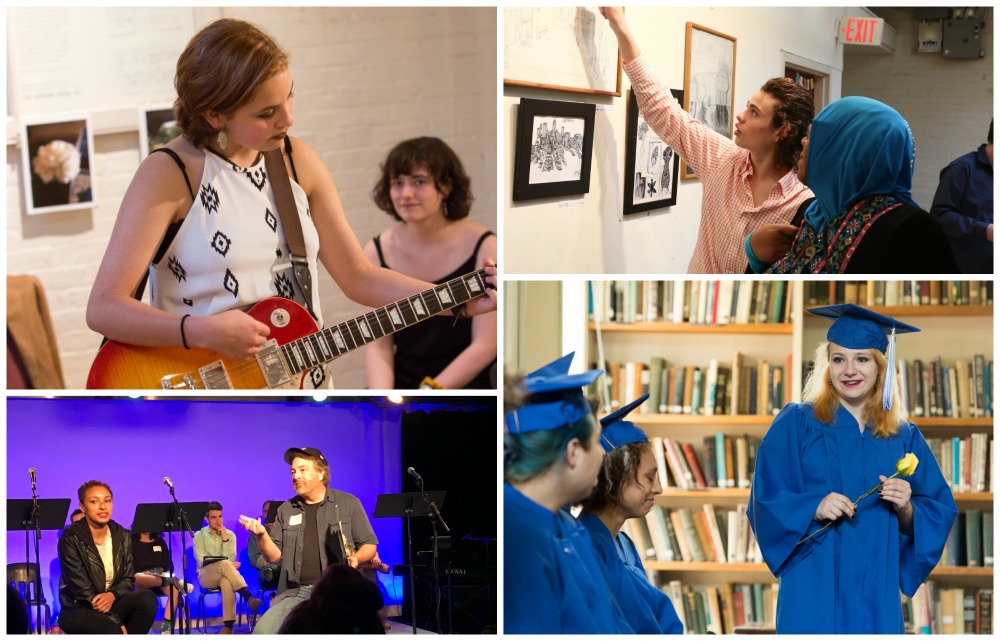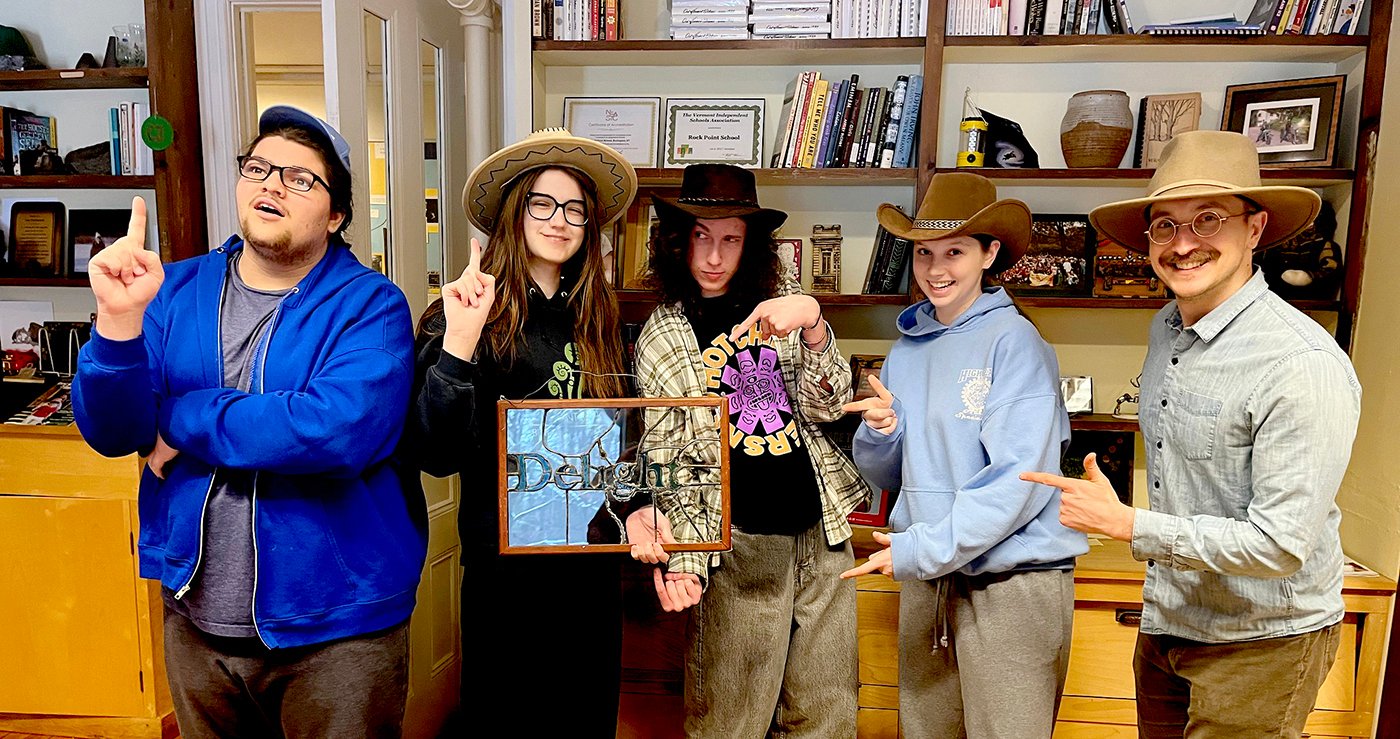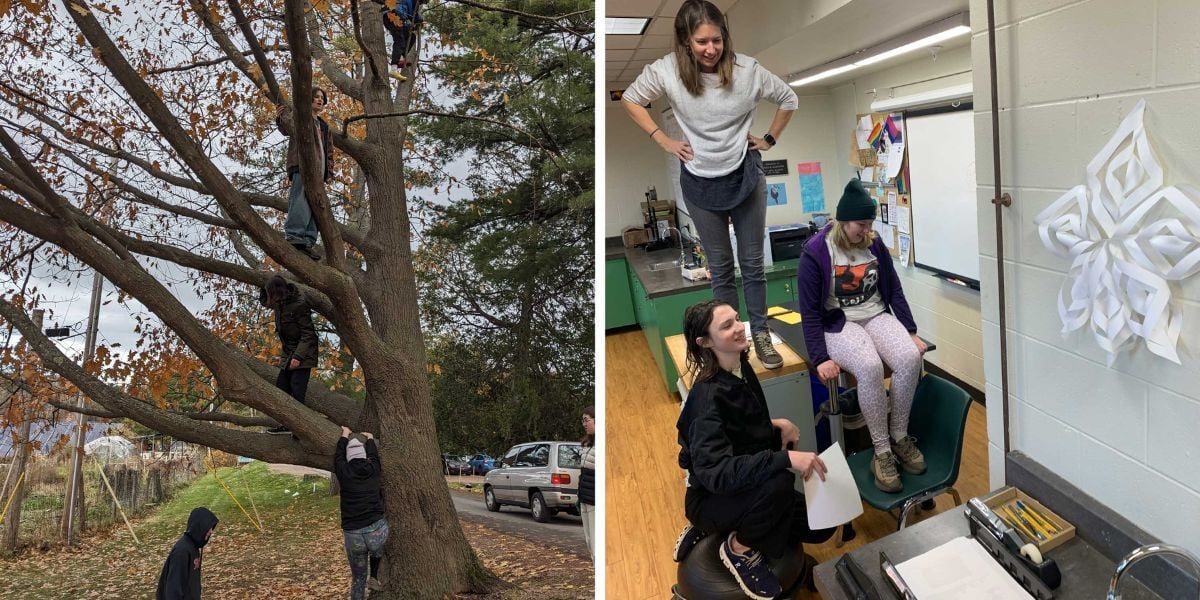How Friction Fosters Connection and Builds Community
In an age where “frictionless” conveniences like instant deliveries and AI interactions promise to make life smoother and easier, a lesser-known cost...

As the spring approaches, our students take part in events that showcase their many achievements throughout the year: our annual Art Show, the Vermont Young Playwrights’ Festival, our student-produced prom, and, of course, our weekend of Graduation events. These opportunities for our students to celebrate their success also allow them a chance to be seen, appreciated, and publicly praised by their peers and by the adults who’ve come to know them throughout the year.
At a time when the current culture has made young people lonelier and more isolated than ever before, teens are at risk of feeling invisible and disconnected from people around them. As educators, one of our most important duties is to work against this trend, to help students feel seen and heard, to remind them of their value and to give them a sense of belonging. At Rock Point, we have found that valuing our students, and nudging them into the spotlight here and there, does wonders for their self-confidence and their general wellbeing.
Pay Attention
One thing we’ve noticed with our students is that they’re not always eager to draw attention to their interests and talents. Many of our students may be defined as introverts, and, as discussed in many recent studies like this one from the New York Times, teenagers in general are at risk of anxiety and low self-esteem. They may feel afraid to be vulnerable enough to share their poetry, art, or athletic abilities. But every student has strengths and talents, and want to be seen and appreciated. Through careful listening, real relationships, and attention to detail, it’s possible to draw out the things that define students, make them proud, and get them excited. At Rock Point, we have meals together, take walks with students, coach them on their work crews, and are generally available to them throughout the day. We notice the book they’re carrying around, posters decorate their dorm room, and conversation topics that get them excited. By allowing them to take their time opening up, and by noticing the things that define them, we create a place where even our quietest and most tentative students begin to feel known.
Celebrate the Small Stuff
Not all students are going to get straight As in class, star in the school play, or be the most valuable player on their team. But that doesn’t mean they’re not succeeding in big and meaningful ways. Success can be a student who previously refused to go to school making it to class, or a student who hasn’t done homework in years turning in an essay. Talent can come in many forms not always celebrated in traditional school settings. We shine a spotlight on students’ achievements that run the gamut from taking on an internship, to having the cleanest dorm room, to being a good friend to their peers. We give incentives throughout the year for these things, in addition to pointing them out to students in person. When students feel that their small victories are being noticed and appreciated, their confidence grows, and they build on their successes.
Take a Tech Break
We’ve seen that quieter, less confident students have a perfect escape in this technologically rich world. The urge to avoid interactions with other people can drive young people toward spending too much time on screens, ultimately making them feel even more withdrawn and isolated. To nudge students out of their comfort zone, it’s important to provide them with time they do not have access to their phones and computers. Oftentimes without the option of disappearing into their phones, students will begin to reach out to each other, and to adults around them. They will be willing to engage in conversation, and find themselves laughing and connecting with each other. While students use phones and computers at Rock Point, because their access is limited they also play board games, take walks, and listen to music together. This simple adjustment to their habits can provide a changed mindset for students who may be out of practice when it comes to making friends. This is another way of helping students feel seen, and feel that they belong, by helping them connect with each other and build friendships.
For more tips on how to manage technology, click the button below.
Be Playful
Making a student feel seen and heard can be playful and lighthearted, and ultimately adds to the fun in a school community. Some of our most memorable events and activities have been efforts to highlight our students’ successes and interests. For example, a student who was interested in baking, with the help and interest of a caring staff member, put on the “Banana-rama” banana bread competition, complete with banana-themed decor, music, and games. This was a simple idea, but it allowed that student to feel a sense of pride and leadership in the community, and to feel that someone had listened to him. At our prom, students honor our seniors one-by-one, acknowledging specific things they appreciate about them. End-of-quarter carnival provides a time for playing games and winning prizes, while our Head of School takes time to point out specific successes students have had through the quarter. We have found it’s very doable to take students seriously, while not making it feel like a serious matter. And students tend to open up more easily, and feel more comfortable when they are approached with humor and fun.
Even quiet, more timid students want to know that they are noticed, that someone sees and values them for exactly who they are. We have found that by going out of our way to help students know that they belong and are appreciated has countless benefits. Students begin to seek more positive attention, leaving behind their more challenging behaviors. Their confidence grows and they are able to take more risks, academically and otherwise. Finally, there is a benefit on the whole community, as students who are feeling good about themselves can help others feel the same way.

In an age where “frictionless” conveniences like instant deliveries and AI interactions promise to make life smoother and easier, a lesser-known cost...

As we are heading into our vacation, I am thinking about a student at Rock Point from many years ago who really struggled to get back into the school...

Every quarter, students choose from several electives, which meet three times a week to supplement the curriculum and provide a fun way to start...